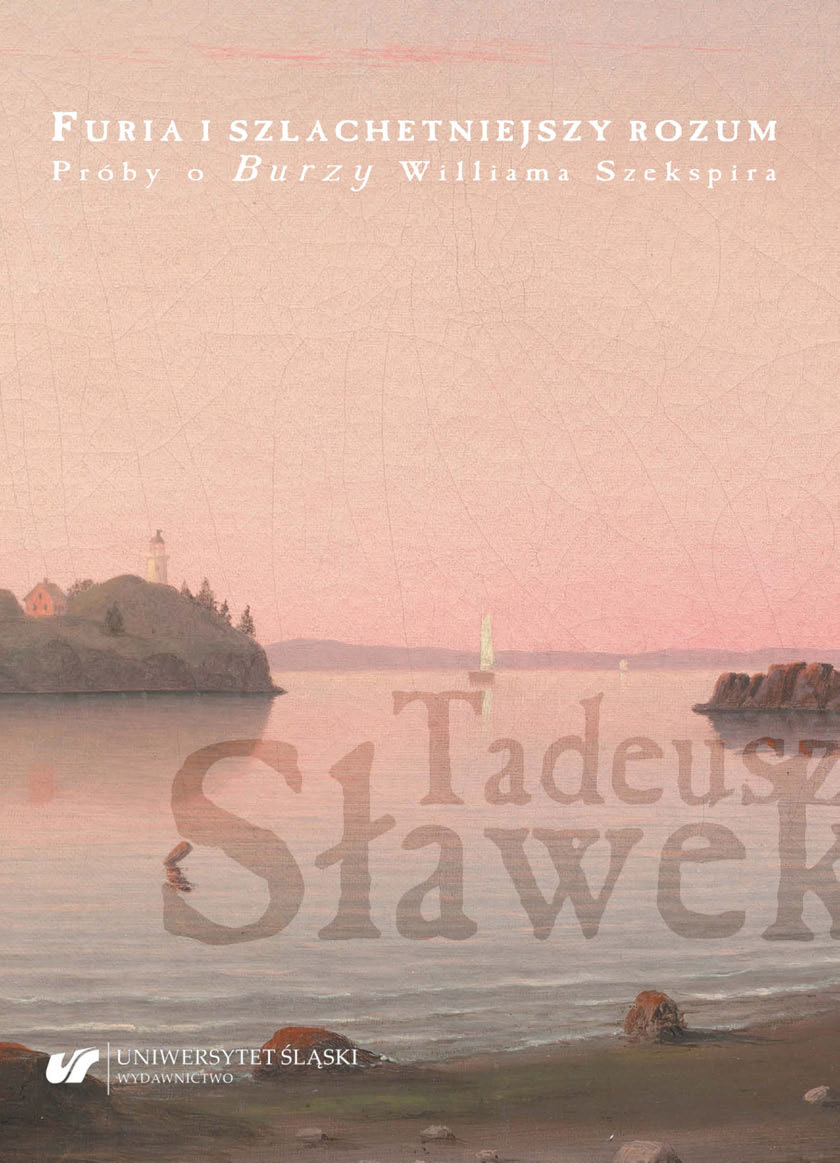Fury against nobler reason. Fragments on William Shakespeare’s The Tempest


This work is licensed under a Creative Commons Attribution-ShareAlike 4.0 International License.
Details about the available publication format: DOWNLOAD FOR FREE
Details about the available publication format: BUY THE BOOK
Synopsis
As Stephen Greenblatt claims The Tempest summarizes all major preoccupations of other plays: legitimate power is abolished, civilization is threatened by wilderness, discourse is besieged by the darkness of inarticulate sounds, and theatrical performance looms large as a metaphor of human life. It is the final play of a great master and hence one is tempted to venture a hypothe-sis that, perhaps Shakespeare’s Prospero, like Ulisses in the XI canto of Odysei, speaks to us from the other side, from a dark and mysterious island of the dead, and his theatre is the only way in which we could approach death in the epoch of broken rituals and general disenchantment. Thus, Prospero’s famous line at the end of the play “Our revels now are ended” declares not only the end of the time of performance but refers to a much wider, Kermodian, sense of ending.
Honorary patronage





